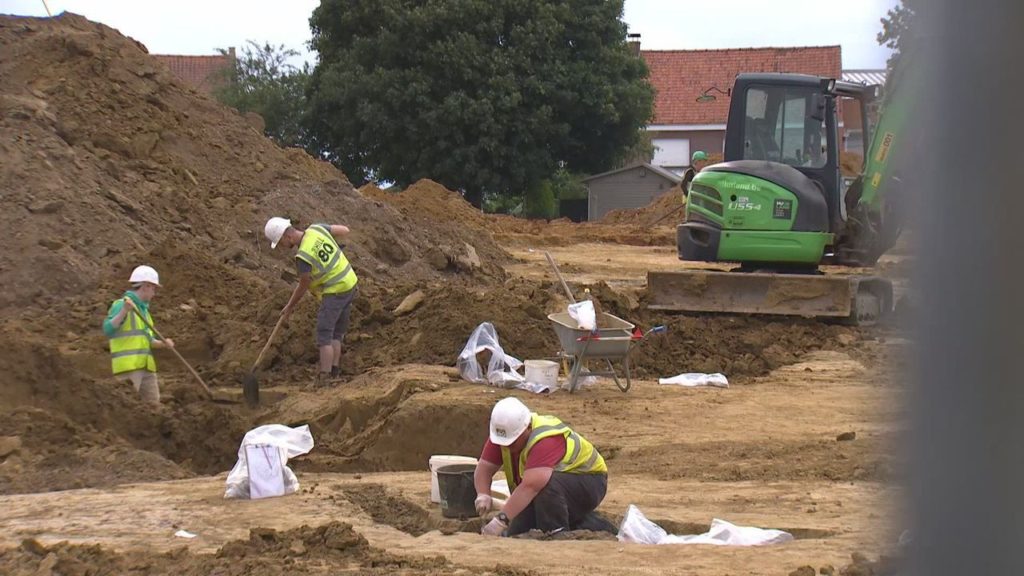Archaeologists at Wijtschate in West Flanders have uncovered the remains of 128 World War One fallen, among them French, German and British soldiers who died on Hill 80, a German bastion. The Germans took over the area early in the war, using existing mill-works to construct a bastion, which would later be extended by trenches reaching almost to the British lines. The site had previously been in French hands, and was later taken over by the British themselves.
Among the remains recovered, now no more than skeletons but with uniform fragment remain to allow identification, is one South African, fighting on the side of the Allies. Whether any of the men can be individually identified will require further research. In any case, they will all receive a proper burial.
Work on the site began in March, and 128 remains have so far been uncovered, described as “a massive number” by Simon Verdegem, one of the archaeologists. As we reported earlier, the dig has already produced WWI ordinance, common enough in West Flanders, as well as the property of soldiers left behind in the trenches.
From the miller’s property diggers have uncovered personal property including plates and cutlery, as well as a glass figure of the Virgin Mary.
- Meanwhile some 200 Canadian soldiers were present at the Saint-Symphorien military cemetery at Mons to mark the loss of their First World War colleagues in the liberation of the city at the end of the war. The city was liberated by Canadian troops in November 1918, and the cemetery is the last resting place of both the first and the last Commonwealth soldier to die in the war.
The Brussels Times

